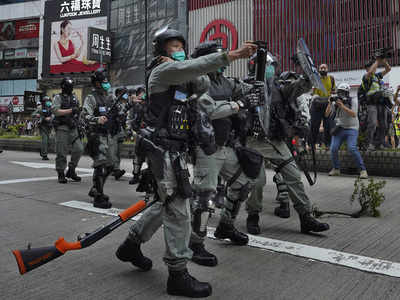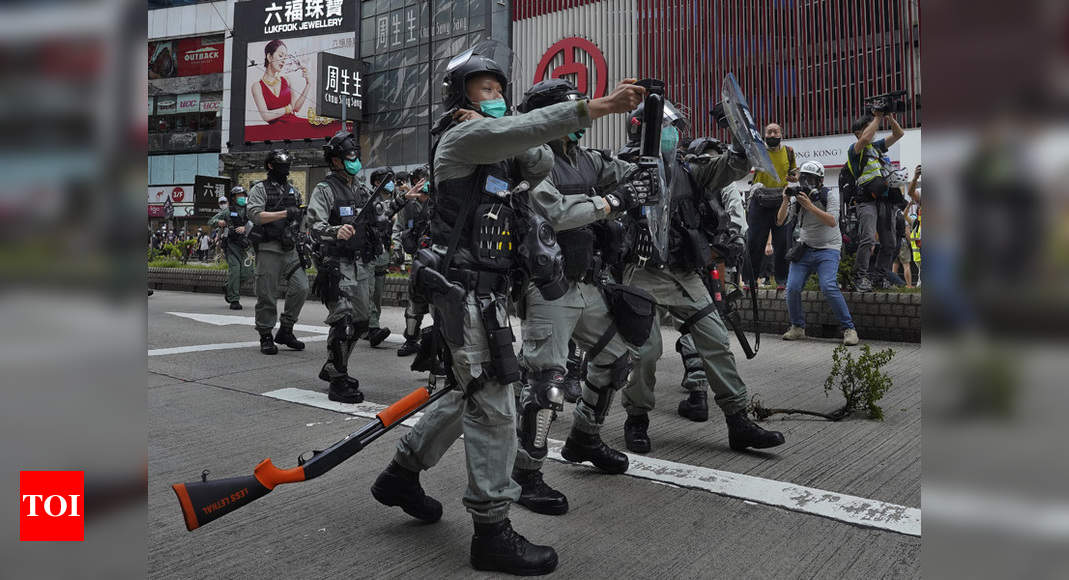
Dennis Kwok was with his two children, hiking through the lush jungles of Hong Kong’s Victoria Peak in April, when he realized how far China was willing to go to quell dissent in the former British colony.
Kwok’s phone lit up with texts and calls asking about an alarming and unprecedented statement from China’s top agency overseeing Hong Kong. It said Kwok — an opposition lawmaker who was participating in a filibuster effort in the city’s elected legislature — may have committed misconduct and violated his oath of office, offenses that could cost him his seat.
“It ruined the day with my kids,” Kwok, 42, said. But the London-trained lawyer also realized that “something fundamental had changed” in the months while Hong Kong protesters had withdrawn from the streets to escape the coronavirus.
“The Communist Party pulled back the curtain,” he said.
This week, China intervened even more dramatically. President Xi Jinping’s government announced Thursday that the National People’s Congress would write sweeping legislation into Hong Kong law to criminalize the harshest criticism of China and the ruling party. Although details remain secret, a similar security bill withdrawn in 2003 carried life sentences and drew massive street protests. All could potentially become law without a local vote.
The move represents the biggest challenge yet to the “one country, two systems” framework set up to guarantee Hong Kong’s liberal institutions and capitalist financial system after its return to Chinese rule in 1997. While the option of handing down such national security legislation has been in the city’s Basic Law since the handover, Xi’s predecessors avoided exersing it due to widespread opposition and concern about damaging the city’s reputation as a legal safe haven.
‘Disastrous Proposal’
Now, China has decided to ignore critics such as Secretary of State Michael Pompeo, who indicated Friday that the “disastrous proposal” could lead the US to reconsider the city’s special trade status. The action raises the stakes for another round of violent and destructive street protests ahead of legislative elections in which “pan-democrats” like

